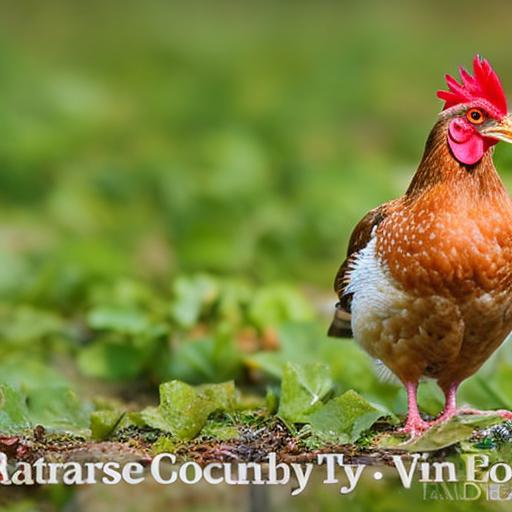Keeping chickens in Buda, Texas has become a growing trend in recent years. Many residents are discovering the benefits of having their own flock of chickens in their backyard. In this article, we will explore the advantages of keeping chickens, the legalities involved, and the practical considerations for those interested in starting their own flock in Buda.
Key Takeaways
- Keeping chickens in Buda can provide numerous benefits, including fresh eggs and meat, natural pest control, and fertilizer for gardens.
- Before starting a backyard flock, it’s important to understand the legal requirements for keeping chickens in Buda, including zoning regulations and permit requirements.
- When choosing chicken breeds for Buda, consider factors such as climate adaptability, egg-laying ability, and temperament.
- Building a chicken coop in Buda requires careful planning and consideration of factors such as size, ventilation, and predator protection.
- Proper feeding, care, and hygiene practices are essential for keeping Buda chickens healthy and productive, and regular egg and meat harvesting can help ensure a sustainable and rewarding backyard flock.
The Benefits of Keeping Chickens
There are numerous benefits to keeping chickens in Buda. One of the most obvious benefits is the production of fresh eggs. Having your own chickens means you have a constant supply of delicious, nutritious eggs right at your fingertips. Not only are these eggs fresher and tastier than store-bought eggs, but they also have a higher nutritional value.
Another benefit of keeping chickens is natural pest control. Chickens love to eat insects and other pests, such as slugs and snails. By allowing your chickens to roam freely in your yard, you can reduce the population of these pests without the need for harmful chemicals.
Chickens also produce high-quality fertilizer. Their droppings are rich in nitrogen, phosphorus, and potassium, which are essential nutrients for plants. By using chicken manure as fertilizer, you can improve the health and productivity of your garden or lawn.
The Legalities of Keeping Chickens in Buda
Before starting your own flock of chickens in Buda, it is important to familiarize yourself with the local laws and regulations regarding backyard chicken keeping. In Buda, there are specific guidelines that must be followed in order to keep chickens legally.
According to the City of Buda’s Code of Ordinances, residents are allowed to keep up to six hens on their property, as long as they obtain a permit from the city. Roosters are not allowed due to noise concerns. The coop must be located at least 25 feet from any neighboring residence and must be kept clean and odor-free.
To obtain a permit, residents must submit an application to the City of Buda’s Planning and Zoning Department. The application requires information about the size and location of the coop, as well as a site plan showing the property boundaries and neighboring residences.
It is important to note that keeping chickens without a permit or violating any of the regulations can result in fines or other penalties. Therefore, it is crucial to comply with all the legal requirements when keeping chickens in Buda.
Choosing the Right Chicken Breeds for Buda
When selecting chicken breeds for your backyard flock in Buda, it is important to choose breeds that are well-suited to the local climate and environment. Buda has a hot and humid climate, so it is important to choose breeds that can tolerate heat and humidity.
Some of the best chicken breeds for backyard chicken keeping in Buda include the Rhode Island Red, the Australorp, and the Barred Plymouth Rock. These breeds are known for their hardiness, heat tolerance, and egg-laying abilities.
When sourcing chickens for your flock, it is important to select healthy, high-quality birds. Look for reputable breeders or hatcheries that prioritize the health and well-being of their chickens. Avoid purchasing chickens from large-scale commercial operations, as these birds may be more prone to health issues.
Building a Chicken Coop in Buda
A safe and functional chicken coop is essential for keeping chickens in Buda. The coop should provide protection from predators, shelter from the elements, and a comfortable living space for the chickens.
When building a chicken coop in Buda, it is important to consider the local climate. The coop should be well-ventilated to allow for air circulation and prevent overheating during the hot summer months. It should also be insulated to provide warmth during the colder winter months.
A simple and affordable chicken coop can be built using basic materials such as wood, wire mesh, and roofing materials. There are many online resources and tutorials available that provide step-by-step instructions for building a chicken coop.
It is also important to provide adequate space for the chickens to roam and exercise. The general rule of thumb is to allow at least 4 square feet of space per chicken inside the coop, and at least 10 square feet of space per chicken in the outdoor run.
Chicken Coop Design and Features

When designing a chicken coop in Buda, there are several key considerations to keep in mind. One of the most important considerations is ventilation. Proper ventilation is crucial for maintaining good air quality and preventing the buildup of moisture and ammonia inside the coop.
Insulation is another important feature to consider, especially during the hot Texas summers and cold winters. Insulating the walls and roof of the coop can help regulate the temperature inside and provide a more comfortable environment for the chickens.
Predator-proofing is also essential when designing a chicken coop in Buda. The coop should be secure and sturdy, with no gaps or openings that predators can squeeze through. It is important to use hardware cloth or wire mesh with small openings to prevent predators from entering the coop.
Other popular features of a chicken coop include nesting boxes, roosts, and automatic feeders/waterers. Nesting boxes provide a comfortable place for hens to lay their eggs, while roosts give them a place to perch at night. Automatic feeders and waterers can help simplify the daily care of the chickens.
Feeding and Caring for Chickens in Buda
Feeding chickens in Buda is relatively simple. Chickens require a balanced diet that includes a combination of commercial feed, kitchen scraps, and foraging opportunities.
A good quality commercial feed should make up the majority of their diet. Look for feeds that are specifically formulated for laying hens, as these contain the necessary nutrients for egg production. It is important to provide fresh water at all times, as chickens can quickly become dehydrated in the Texas heat.
In addition to commercial feed, chickens can also be fed kitchen scraps such as fruits, vegetables, and grains. However, it is important to avoid feeding them anything that is toxic or harmful to their health. Some common foods that should be avoided include chocolate, onions, garlic, and avocado.
Caring for chickens in the Buda climate requires some additional considerations. During the hot summer months, it is important to provide shade and access to fresh water at all times. Chickens can suffer from heat stress or even die from heatstroke if they are not provided with adequate cooling measures.
During the colder winter months, it is important to provide insulation and protection from drafts inside the coop. Chickens are generally hardy animals and can tolerate cold temperatures, but they still need a warm and dry environment to stay healthy.
Health and Hygiene for Buda Chickens
Maintaining good hygiene and sanitation practices is crucial for keeping chickens healthy in Buda. Regular cleaning of the coop and yard can help prevent the buildup of bacteria and parasites that can cause disease.
It is important to regularly clean out the coop and replace bedding material to prevent the accumulation of droppings and moisture. The coop should also be thoroughly cleaned and disinfected on a regular basis to kill any potential pathogens.
Regular health checks are also important for identifying any potential health issues early on. Look out for signs of illness such as lethargy, loss of appetite, abnormal droppings, or respiratory symptoms. If you notice any of these signs, it is important to seek veterinary care as soon as possible.
There are also natural remedies and preventative measures that can help keep Buda chickens healthy. For example, diatomaceous earth can be used to control external parasites such as mites and lice. Herbs such as garlic and oregano can be added to their diet to boost their immune system and prevent disease.
Harvesting Eggs and Meat in Buda
One of the most rewarding aspects of keeping chickens in Buda is the ability to harvest fresh eggs. Chickens typically start laying eggs at around 5-6 months of age, depending on the breed. The frequency of egg production can vary, but most hens will lay an egg every 1-2 days.
To collect and store fresh eggs, it is important to handle them with care. Eggs should be collected daily and stored in a cool, dry place. It is best to store them with the pointed end down to help maintain their freshness.
Raising chickens for meat is another option for those interested in self-sufficiency and sustainability. However, it is important to consider the ethical and practical considerations of raising chickens for meat. If you choose to raise chickens for meat, it is important to ensure that they are raised humanely and slaughtered in a humane manner.
There are local processing facilities available in the Buda area that can assist with the processing of chickens for meat. It is important to do thorough research and choose a facility that follows humane slaughter practices.
Is Keeping Chickens in Buda Right for You?
Keeping chickens in Buda can be a rewarding and fulfilling experience. The benefits of fresh eggs, natural pest control, and fertilizer production make it an attractive option for many residents. However, it is important to consider the legalities, practical considerations, and responsibilities involved before starting your own flock.
If you are considering keeping chickens in Buda, take the time to research local laws and regulations, choose the right chicken breeds for your climate, build a safe and functional chicken coop, and provide proper care and nutrition for your chickens. With proper planning and preparation, keeping chickens in Buda can be a fun and rewarding endeavor.
If you’re considering keeping chickens in your backyard, you may be wondering about the best way to provide them with a safe and comfortable living space. One option worth exploring is renting a chicken coop. This article from Poultry Wizard offers valuable insights into the benefits of renting a chicken coop and provides helpful tips on how to choose the right one for your flock. From discussing the advantages of temporary setups to highlighting the convenience of easy maintenance, this article covers all the essential information you need to know. To learn more about renting a chicken coop, check out Poultry Wizard’s informative article here.
FAQs
What is Buda?
Buda is a city located in Hays County, Texas, United States.
Is it legal to keep chickens in Buda?
Yes, it is legal to keep chickens in Buda. However, there are certain regulations and guidelines that need to be followed.
What are the regulations for keeping chickens in Buda?
According to the Buda City Code, residents are allowed to keep up to six chickens on their property. The chickens must be kept in a secure enclosure and cannot be allowed to roam freely. Additionally, the enclosure must be kept clean and free from odors.
Do I need a permit to keep chickens in Buda?
No, you do not need a permit to keep chickens in Buda as long as you follow the regulations set forth in the Buda City Code.
What are the benefits of keeping chickens in Buda?
Keeping chickens in Buda can provide a source of fresh eggs and can also be a fun and educational hobby for families. Chickens can also help control pests in the yard and provide natural fertilizer for gardens.
What are the potential drawbacks of keeping chickens in Buda?
Some potential drawbacks of keeping chickens in Buda include noise from crowing, odors from the chicken coop, and the possibility of attracting predators such as raccoons or coyotes. It is important to properly secure the chicken enclosure to prevent these issues.
Meet Walter, the feathered-friend fanatic of Florida! Nestled in the sunshine state, Walter struts through life with his feathered companions, clucking his way to happiness. With a coop that’s fancier than a five-star hotel, he’s the Don Juan of the chicken world. When he’s not teaching his hens to do the cha-cha, you’ll find him in a heated debate with his prized rooster, Sir Clucks-a-Lot. Walter’s poultry passion is no yolk; he’s the sunny-side-up guy you never knew you needed in your flock of friends!







